![]()
|
William
Hilditch & Sons |
Location and period of operation:
|
W Hilditch
& Sons |
Lane End |
Nov
1819 |
1830 |
China
and earthenware
manufacturers at the Church Street Works, Lane
End, Stoke-on-Trent,
England.
|
Formerly: Hilditch & Martin
Subsequently: Hilditch & Hopwood
|
Church Street Works "The Church Street Works were established in the latter half of last century, and in 1780 were carried on by Mr. John Forrester, who was succeeded, in 1811 by Messrs. Hilditch & Sons, who in their productions followed closely in the wake of Josiah Spode and Thomas Minton; at which time most of the processes here were carried out by female hands. In 1830 the firm changed to that of "Hilditch & Hopwood," who, at the Exhibition of 1851, sent up some notable examples of their productions, one of which was a dessert service decorated in the Renaissance style in gold, with landscape and figure vignettes, mainly illustrative of Scott's "Marmion" and they also exhibited some very successful imitations of Indian china, prepared by them from designs by Mr. Shorter, of London. The tea services exhibited at the same time were remarkable for their excellent body, the design and execution of the painted decoration, the high class of the ground colours, and the massiveness of the gilding. One example, with raised antique foliage in gold on the fine old " Derby blue " ground, was especially good ; while the painting of others, with small landscapes in medallions, and wreaths of flowers, was far beyond average merit. In 1858, on the death of Mr. William Hopwood, the works were continued by the trustees till May, 1867, when the business, stock, and plant, including the moulds, copperplates, &c., were sold to Dale, Page & Goodwin.." Llewellynn
Jewitt, Ceramic Art of Great Britain NOTE: In 1811 the business was originally Hilditch & Martin. |
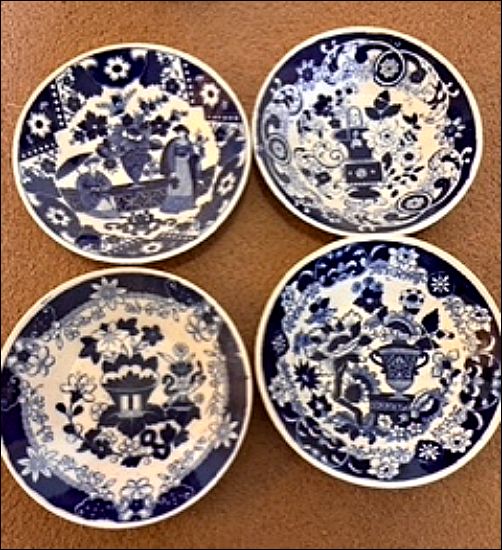 |
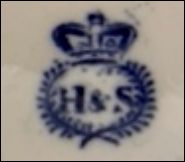
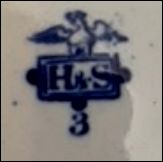
Hilditch & Sons photos courtesy: Peter Helm |
Marks used on ware for identification:
|
Ware manufactured by the former partnership of Hilditch & Martin does not appear to have been marked. With the exception of a faux 'Oriental' mark all of William Hilditch and Sons marks have the initials H & S. Some marks include a pattern number. |
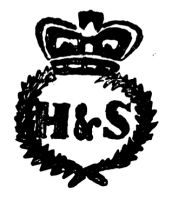
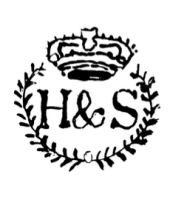
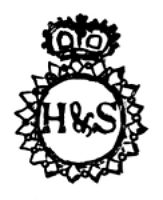
H & S
marks with a crown and laurel leaves or ornamental circle
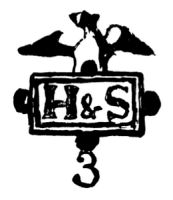
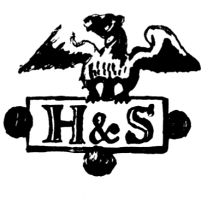
H & S
initials in a rectangle with a Phoenix above
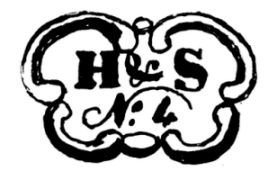
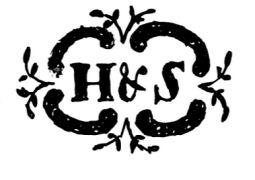
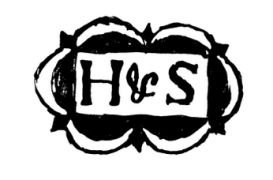
H & S
initials within a scroll border
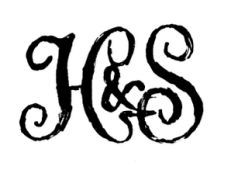
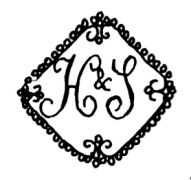
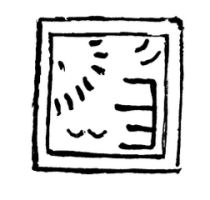
faux 'Oriental' mark
Hilditch (other potters) added
similar marks to their ware to give the
impression of the Orient to their ware even though it was produced in England.
Questions, comments, contributions? email: Steve Birks